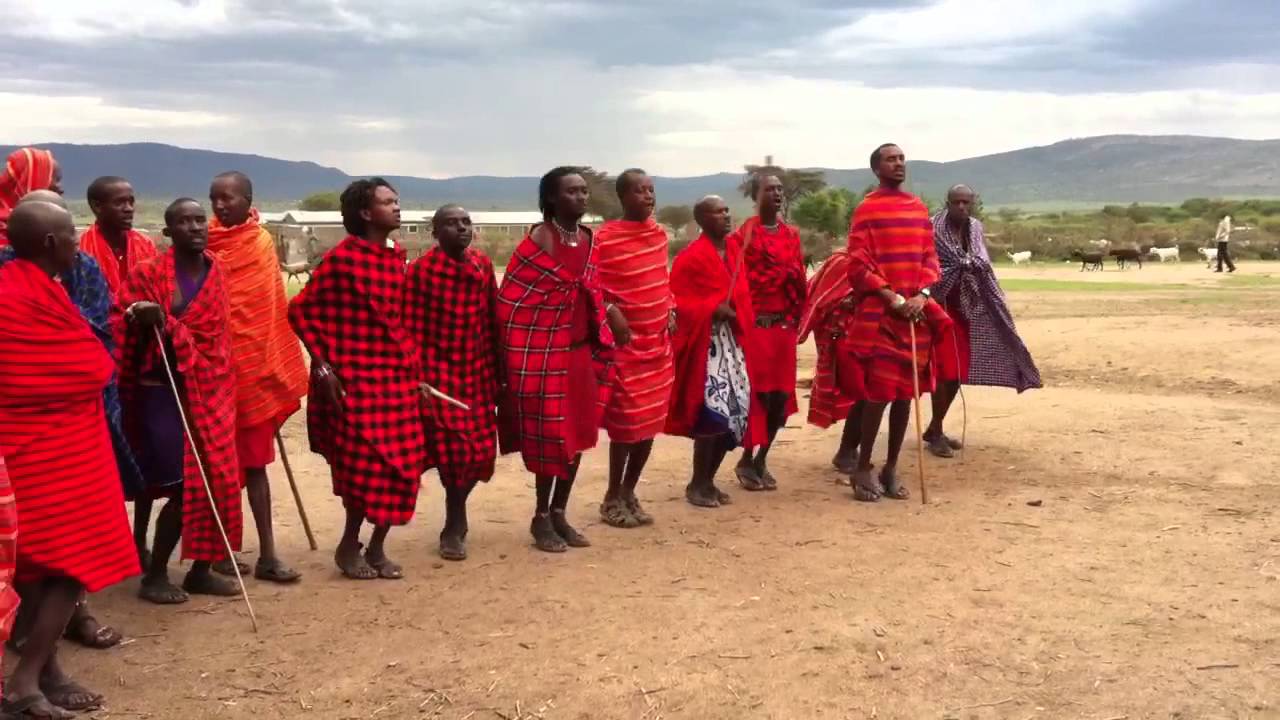
The Maasai of Kenya and Tanzania perform a dance known as the Adumu during the eunoto ceremony. The eunoto, which lasts for about ten days, is a ceremony where junior warriors(morani) transition into adulthood. They afterwards become senior warriors and are allowed to choose wives upon successfully passing the ritual.
The Maasai warrior society is organized mainly by age groups. Children stay at home with their parents until their teenage years, when boys undergo the first stages of manhood through the emuratta, a ritualized circumcision ceremony. It is important to note that girls do not have an age group like boys but undergo specific rituals as they get to adulthood.
Boys who successfully go through the emuratta become junior warriors. After the ceremony, the new morani live together for about ten years, away from other community members. They are not allowed to eat or drink in the presence of a woman. The main reason for the seclusion is to teach them independence.
The adumu dance, meaning jumping up and down, is the climax of the ceremony. The performance involves the warriors forming a circle, with one or two in the middle at a time. They then begin jumping while maintaining a narrow and stiff posture, heels never touching the ground.
The more graceful and higher the jumping, the more appeal the warrior has to the young women looking on. It offers serious motivation to the young men as they will have the opportunity to marry after the Eunoto ceremony is complete.
When one warrior tires, another takes his place. The other members forming the circle sing and raise their voices based on the height of the performers' jumps. Women only attend the ceremony as spectators. Girls and mothers sing to pay tribute to the courage and daring acts of their sons.
Join the Lughayangu Community!

